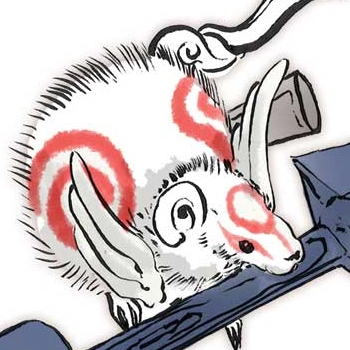I could be wrong here, but it seems to me that a common aspect amongst all languages is the tendency to raise the pitch of your voice slightly when asking a question. Especially at the end of a question sentence.
If I’m wrong about this raised pitch being common amongst all languages, at the very least do all languages change their tone slightly to indicate that a question is being asked?
I guess there needs to be some way to indicate what is and isn’t a question. Perhaps a higher pitched voice reflects uncertainty. Is this something deep rooted in humans, or just an arbitrary choice when language developed?


Hi! I’m Chinese and this is incorrect. 吗 (mā) and 边 (biān) actually have the same flat intonation, so there isn’t a rise in pitch in either of the questions. To answer OP, the word 吗 in particular is just typically used to end off some sentences in order to differentiate whether they are statements or questions, ie. 你要回家。(You want to go home.) vs 你要回家吗?(Do you want to go home?)